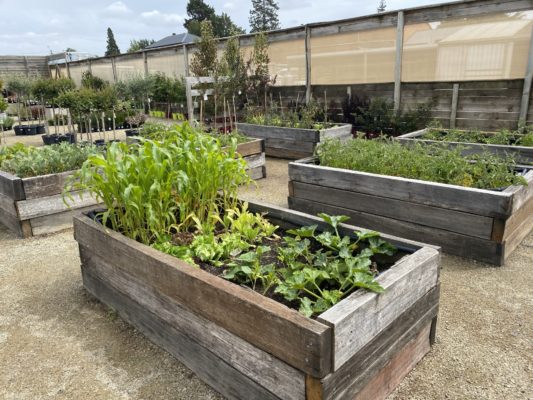No dig, no worries!

No dig garden beds are increasing in popularity and for good reason.
Built at a good practical height, raised no dig gardens reduce the backbreaking hard work leaving you to enjoy your time in the garden. When constructing "No Dig" garden beds, we suggest and encourage the following construction method to provide a good growing environment.
First, add 1/3 volume of a coarse aggregate for drainage. We used a 40mm blue metal for this step. Next is to add 1/3 volume again of a suitable mulch for composting, for this step we used a wheat straw. A multitude of other straw is also suitable; for example pea straw, barley straw, or even wheat straw. The only hay we suggest you consider using is Lucerne, grass or pea hay will still have seeds in the stalks and will grow in your garden beds.
Lastly, fill the remainder of the beds with a good quality veggie garden blend or compost blend. DO NOT use straight topsoil; because of the uniform particle size of topsoil, when it gets wet it packs down hard and anything will struggle to grow. Our veggie garden blend contains our screened improved topsoil, composted manure, sand and potting bark. This combination of growing medias is tried, tested and proven. You do no need to add any fertiliser when establishing the beds.
When choosing what to plant and where, we love working by the Farmers Almanac guide for companion planting, found here
https://www.farmersalmanac.com/companion-planting-guide-31301
Although an international page, the companion planting is still relevant for all parts of Tasmania. By opting for companion planting, you reduce diseases, increase natural pest deterrence, and have healthy fruit and vegetables in abundance!
If your raised beds lay dormant in the winter time, we suggest planting a green manure crop to replenish nitrogen levels back into the soil ready for your next growing season.
If you're looking for a good 'go to' guide on what to plant and when, Peter Cundall has an exceptional year-round planting guide that is suitable for Tasmania and cold climates.
You can find Peters guide here
https://www.abc.net.au/local/stories/2008/07/07/2296755.htm
If ever you have any questions about your garden, ideas on what to grow or plant, just ask our helpful knowledgeable team, they are only too happy to help.